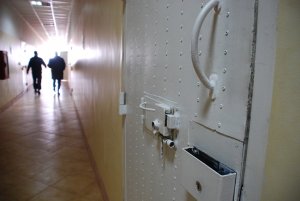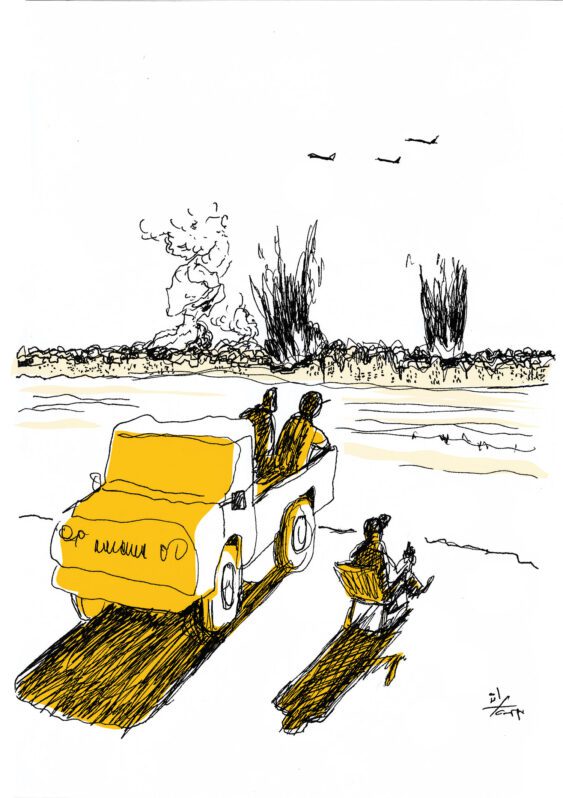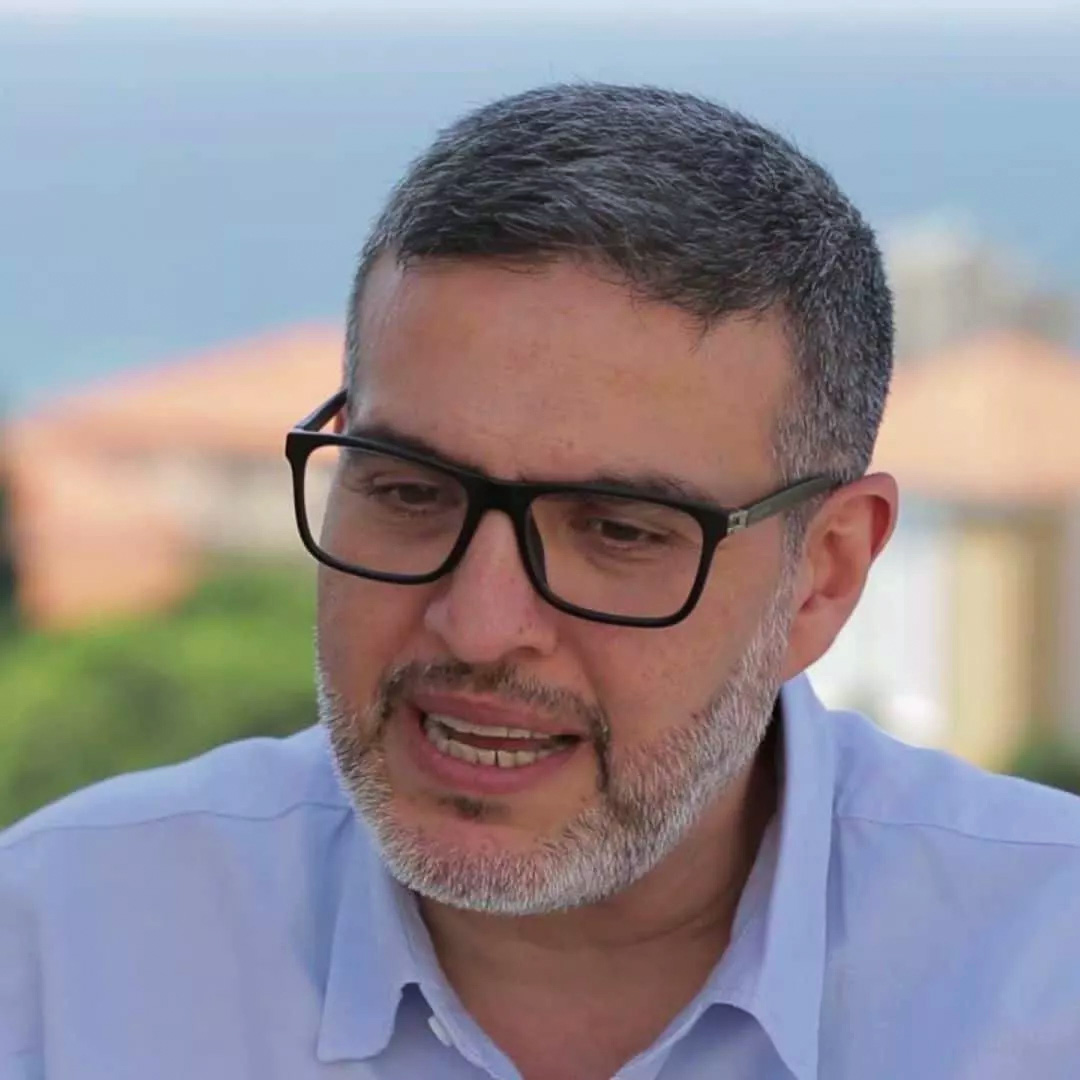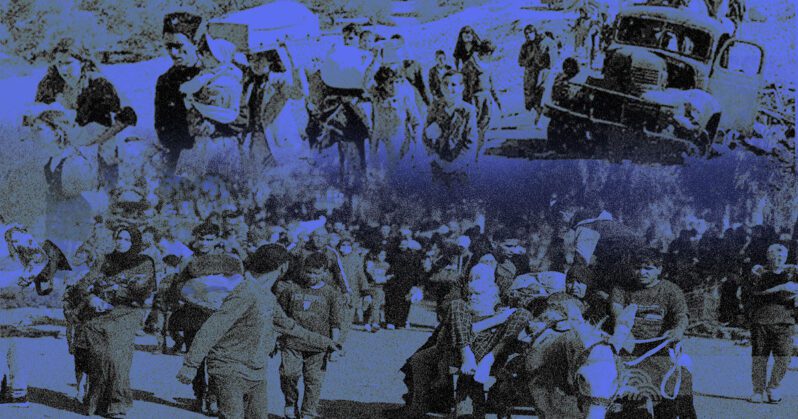Jordan Fined for Detention of Foreign Worker: When Strategic Litigation Works

On October 22, 2014, the Magistrates Court in Amman, presided over by Judge Haifa Kayyali, issued a ruling that convicted Jordanian authorities of holding an Egyptian citizen in arbitrary detention, and compelled them to pay JD2,000 (~US$2,800) in compensation for the resulting damages. The plaintiff, an Egyptian citizen who has been living in Jordan as a migrant worker since 2004, was detained for a year and four months following a dispute with his Jordanian employer (and work sponsor, or kafil). The dispute led to the cancellation of the Egyptian’s work permit, without informing him in accordance with the kifala or sponsorship system; the governor of Amman subsequently issued decisions to deport him to his home country and to keep him in detention, until his case was settled and the deportation order had been carried out.
The plaintiff, however, went on a hunger strike, which led to his release on January 20, 2011. It was not until months later, in August 2011, that he brought forward a legal case through Tamkeen, an organization that provides legal aid to migrant workers in Jordan. The case was brought against several public officials including the interior minister, the Director of Public Security, the director of the Jweideh Correctional and Rehabilitation Center (JCRC), and the governor of Amman. The lawsuit considered them collectively responsible for the worker’s arbitrary detention, and the resulting deterioration of his physical and mental health. It called for compensation for material, mental, and psychological damages as well as lost earnings. Coming in the wake of [related] rulings reflecting a number of different views, this legal suit resulted in the issuing of the judicial decision discussed here.[1] The ruling warrants three observations:
Legal aid efforts in Jordan are on the rise, and tend to makes use of strategic litigation.
The lawsuit itself is a key indication of increased legal aid efforts in Jordan, and of the emergence of a specific approach that uses strategic litigation – that is, litigation that aims, through the judiciary, to realize a particular change in practices or in the principles upon which these practices are based. This has emerged by way of the legal case presented here. A case of personal injury, that of the Egyptian worker, was framed as an issue of public concern with broader implications regarding the practice of detention. After asserting that the plaintiff’s detention had no legal basis, and that it constituted a violation of the second article of the Jordanian Constitution, the suit aimed to refute the public administration’s justifications for these kinds of detentions.
Jordanian law (like Lebanese law) stipulates that in order to justify deportation, the intended deportee must be detained “for the sake of preserving security and public safety”. These were not the circumstances in this case, as the plaintiff had no prior convictions and there was nothing “that pointed to a clear indication that he intended to commit a crime”.
As explained in the case, even when there is cause for deportation, two additional conditions, proportionality and necessity, must be fulfilled to justify detention. This was not taken into consideration in this case. “Jordanian labor law does not mandate this [harsh] punishment which was carried out against [the plaintiff], without providing him with an opportunity to complain or make an objection”.
The “administrative detention of the plaintiff for a year and four months under the pretext of the imperatives of deportation defies reason, logic, the law, the principles of fairness, the exigencies of justice, and necessity. Detention under the pretext of the adopted measures [in this case] is an abuse of the power granted to the defendants by law, because of the lack of proportionality between the act and the damage inflicted (…) even the measures that were [eventually] taken were not serious and sufficient to resolve the plaintiff’s problem, given that he had been continuously detained for an indefinite amount of time”. Making its case, the lawsuit explained “that the plaintiff’s detention continued under the pretext of fines that had been imposed upon his wife, which is inconsistent with the principle of individual punishment”.
More importantly, the case deemed the defendants’ actions in keeping the plaintiff in arbitrary detention to be a form of cruel and inhuman punishment, in accordance with Article 16 of [the UN Convention against Torture], of which Jordan is a signatory.[2] While pointing out that Jordanian law is devoid of any “text concerning the state’s responsibility to compensate individuals for damages resulting from acts and behavior of its personnel”, the lawsuit referred to international law (which, according to the interpretation of the Jordanian Court of Cassation, takes precedence over domestic law), which guarantees the right of every individual to compensation for losses or damages incurred due to arbitrary detention.[3]
The legal proceedings ended by requesting that the court hear “personal evidence [from the plaintiff], in order to provide the opportunity to verify all aspects of the damages he suffered, and to consult technical expertise through the knowledge of one or more qualified experts (…) in order to estimate the amount of material, emotional, and psychological damage that the plaintiff suffered”.[4] By extension, it called for compelling the defendants to provide compensation in the amount determined by the experts.
It is worth noting that Tamkeen, which has pursued a number of cases involving arbitrary detention, chose to file this lawsuit on behalf of a person who had already been released. This may be to avoid any harm that might result from comparable cases [brought on behalf of persons still in detention], which could lead to the lengthening of the period of detention, or causing any other form of damage to the plaintiff as a result of bringing [such a] suit.
The judiciary’s role in protecting marginalized groups.
In condemning the abuse of administrative detention which the court described as the “abusive exercise of a legal right” on the part of the Jordanian authorities, this case is the first ruling of its kind in Jordan. The decision is a profound indicator of the judiciary’s ability to protect the vulnerable groups in society.
The court first turned its attention to the facts of the case, which it described as well established. These documented facts outlined the incidents in which the plaintiff was held first by his work supervisor, and then in administrative detention with the aim of deportation in accordance with the decision of Amman’s governor. After presenting the plaintiff’s demand for compensation for his arbitrary detention and the cruel and inhuman treatment that he faced, the court presented the law applicable in the case. According to the view of the court, civil Jordanian law guarantees that injured parties have the right to claim compensation from the party that caused the injury. As a result, the court concluded by compelling the state to pay compensation for losses and damages to the plaintiff in the amount of JD2000 [US$2,600], which averages to nearly US$200 per month for the duration of his detention, based on the evaluation of an expert who had been appointed for his technical knowledge. As for the matter of keeping the plaintiff in custody until the fines incurred by his wife were settled, the court found this to be evidence of abuse, as the detention had taken place on account of reasons to which the plaintiff was not answerable in any way.
Thus, the court raised the possibility of the Jordanian judiciary playing a key role in protecting the most marginalized individuals. It is worth noting that unlike the lawsuit itself –which relied upon the UN Convention against Torture and other international treaties– the judge invoked domestic Jordanian law. The court sought to establish that the public administration was in violation of its duties without charging the Jordanian state with violating international treaties and conventions.
Invoking the Lebanese experience in the realm of arbitrary detention.
This ruling, with its legal commitment to litigation on behalf of the Egyptian worker, calls to mind the Lebanese experience of confronting the General Directorate of General Security in previous years, particularly in 2009 and 2010. During that period, dozens of Iraqi refugees sued the Interior Ministry and General Security because the latter had detained them arbitrarily, and without any judicial basis. At the time, a number of rulings were issued censuring the Lebanese state for violating personal freedoms, and compelling the state to release the detained persons immediately.
This litigation movement [in Lebanon] entered another stage with demands that the state advance expenses for compensation of damages sustained as a result of arbitrary detention. Summary Affairs Judge Zalfa al-Hassan of Beirut endorsed this measure in two rulings, issued on June 8, 2010. As soon as they were issued, these rulings faced violent opposition from the General Security, whose Director General accused the judge of “not knowing what she was doing”.[5] Judge Hassan went on to require the government to pay LL60 million in a decision she issued on May 12, 2013, due to the government’s delay in executing her ruling for the immediate release of one of the Iraqi refugees. Until this day, however, other similarly significant rulings ordering compensatory payments have not been carried out.
This article is an edited translation from Arabic.
__________
[1] On May 31, 2012, a magistrate in Amman dismissed a case, citing a lack of jurisdiction; the appeals court in Amman overturned this ruling on June 20, 2013, and the documents were returned to their source.
[2] Article 16 of the UN Convention against Torture states:
1. Each State Party shall undertake to prevent in any territory under its jurisdiction other acts of cruel, inhuman or degrading treatment or punishment which do not amount to torture as defined in Article 1, when such acts are committed by or at the instigation of or with the consent or acquiescence of a public official or other person acting in an official capacity. In particular, the obligations contained in articles 10, 11, 12 and 13 shall apply with the substitution for references to torture or references to other forms of cruel, inhuman or degrading treatment or punishment.
2. The provisions of this Convention are without prejudice to the provisions of any other international instrument or national law which prohibit cruel, inhuman or degrading treatment or punishment or which relate to extradition or expulsion.
[3] The allegations brought in the case mentioned articles 10 and 12 of the International Convention on Civil and Political Rights and article 9 of the Universal Declaration of Human Rights.
[4] The meaning of technical expertise, according to the written allegations presented in court, is the appointing of an expert to apply technical expertise in order to estimate the amount of material, emotional, and psychological damages, and compensation for lost income, resulting from what the plaintiff experienced due to the actions and behavior of the defendants. It also called for [the expert] to demonstrate the extent to which the defendants’ behavior conformed with international standards, specifically the behavior incumbent upon states party to the International Covenant on Civil and Political Rights.
[5] See Frontiers Ruwwad, “Resorting to Arbitrary Detention is a Policy Beyond the Constitution”, 2010.
Mapped through:
Articles, Inequalities, Discrimination and Marginalisation, Jordan
Related Articles



